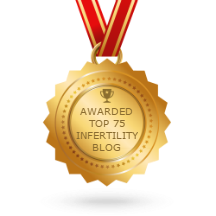Endometriosis – Do’s and Don’ts
Have you been diagnosed with endometriosis? In addition to frightening you a little bit, it can change your life completely. The diagnosis may also make you feel overwhelmed, especially because there is no cure for the condition. Endometriosis is a physical condition, but it has the ability to affect you emotionally and mentally as well. You don’t have to lose hope because help is available. You could have taken steps to prevent it, but you need not think that you are cursed. Of course, you need to be a little patient and persevering to properly manage the condition.
In order to cope with the condition, you have a few options available to you in terms of the medical team you want to work with, and diet and lifestyle changes, among others. However, the choices you make impact your ability to cope with the condition. As such, it is a good idea to follow the Do’s and Don’ts for endometriosis listed below to improve not only the quality of your life but also the prognosis.
Endometriosis – What to Do
Do what your body says
You understand your body much better than anybody else. So, the best thing to do is listening to your body until you get the answers you want. Endometriosis can affect the quality of your life and fertility. Ultrasound may not detect most endometriosis.
Have a clear understanding as to what endometriosis is
Read and research about endometriosis and know your options. Knowing the facts is essential for effectively managing the condition. Seek support from friends and family members by interacting with them. Consider counseling and seek fertility help quickly.
Maintain a journal
Write down the symptoms as you experience them to keep track of the signs and symptoms such as at what time of the day the symptoms become better or worse, what specific activities contribute to relieving or worsening the pain, and at what time the pain comes or goes. It also helps you to clearly explain your condition to your doctor.
Exercise regularly
Exercising regularly has been found to help relieve the symptoms of endometriosis. You can involve in meditation and yoga to better manage the condition.
Watch your diet
Some women have experienced relief from symptoms when they followed specific diets. It is not possible to predict whether you will also be benefited by changing your diet as it is dependent on a number of variables. You can eat fresh vegetables and fruits after washing them so that you don’t ingest pesticides and other toxins. You should always strive to have a healthy diet. It is better to eat freshly made meals prepared using fresh ingredients.
Irrespective of whether the changed diet relieves the symptoms of endometriosis or not, it contributes to:
- Minimizing overall inflammation
- Reducing abdominal as well as intestinal distresses such as bloating and cramping
- Weight loss
- Strengthening your immune system
- Giving you more energy
- Stabilizing hormone levels
- Improving your overall health
Ultimately, it will help you to feel better.
Drink lots of water
It is important to drink plenty of water and keep yourself hydrated at all times.
Endometriosis – What Not To Do
Never neglect the symptoms
It takes a long time to diagnose the condition. During this period you may suffer severe pain and you may not be able to work, socialize, or even enjoy a sexual relationship. You should never ignore the pelvic discomfort or pain experienced during intercourse or bowel movements.
There is no need to panic
Never make any hasty decisions, especially out of desperation. You should look at the big picture. You can always find a compassionate medical team with the skills to help you cope with the condition.
Diet
When it comes to endometriosis diet, avoid consuming large amounts of sugar, wheat, caffeine, soy, or dairy. Also, avoid alcohol and aerated drinks. Never change your eating habits without consulting your doctor.
Never get depressed
Instead of getting depressed, you should feel empowered to seek help from support groups, read as much as possible about endometriosis, experiment by changing diet, exercise, and meditate.
It may be difficult to diagnose and treat endometriosis as symptoms are often similar to other conditions. It is, therefore, important that you consult only with an endometriosis specialist. Fortunately, treatments that help you manage the symptoms are available. Eating and sleeping well managing stress, and exercising help you to manage the condition better. In extreme situations, the gold standard of endometriosis treatment is excision surgery. Seek help from our endometriosis specialists.





 (+91) 880 557 7600
(+91) 880 557 7600
 Abhyankar Road, Dhantoli, NAGPUR-12
Abhyankar Road, Dhantoli, NAGPUR-12






Leave a Reply